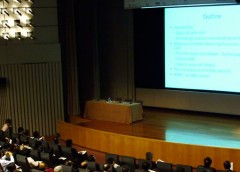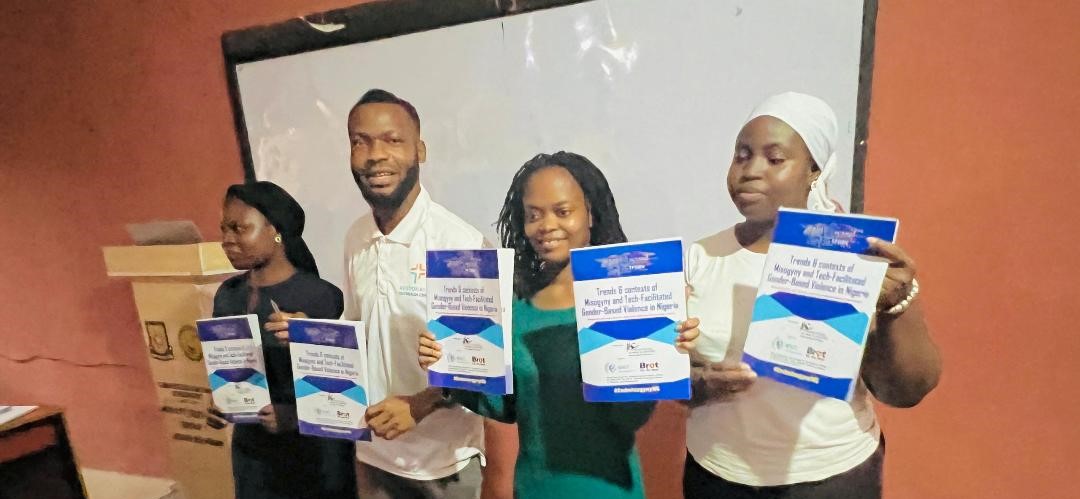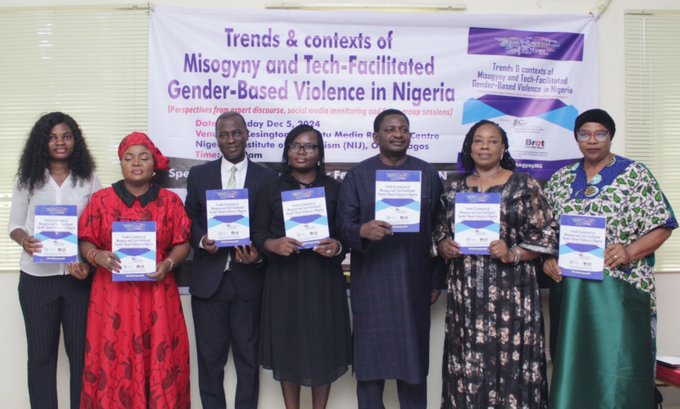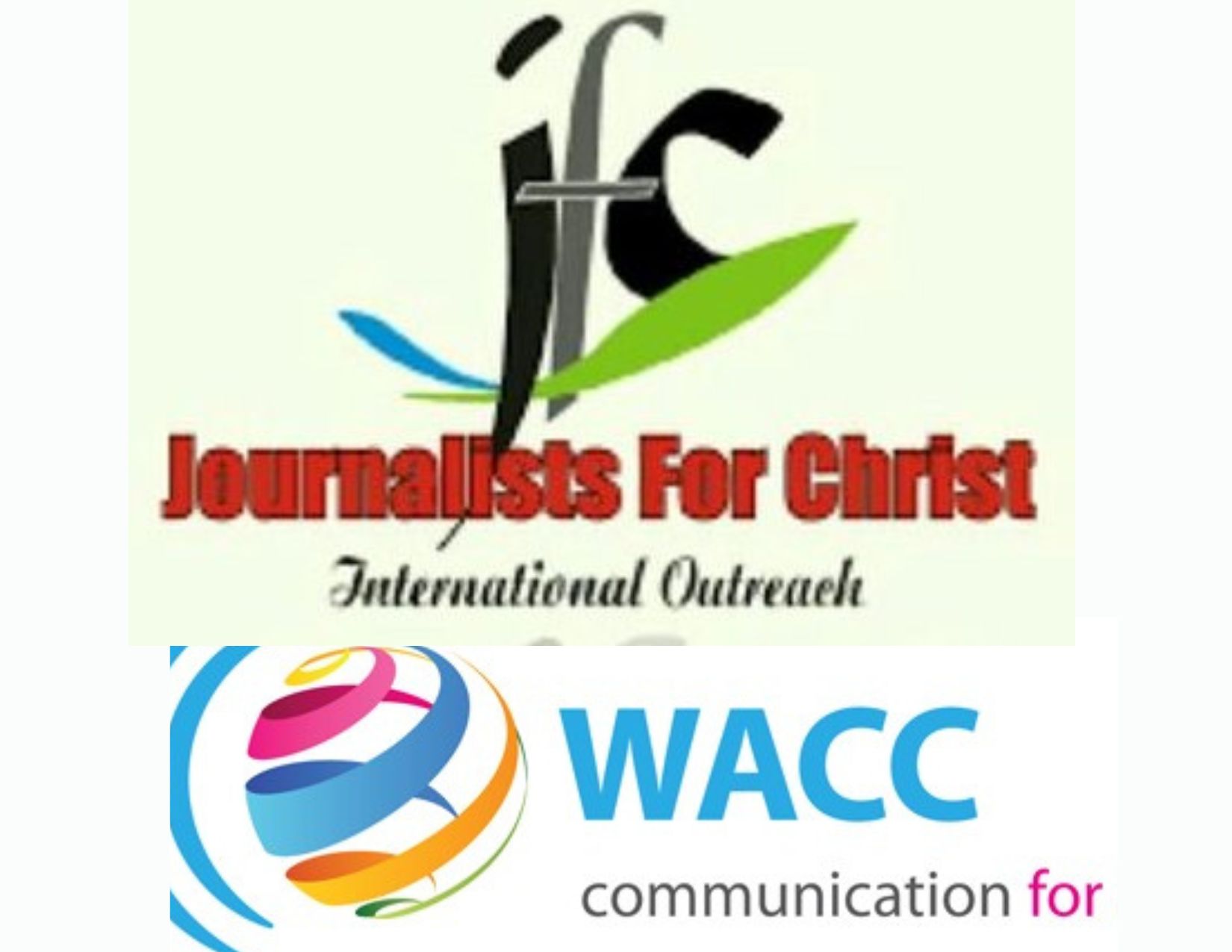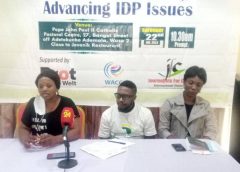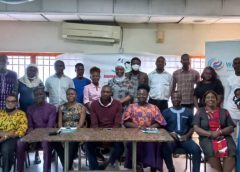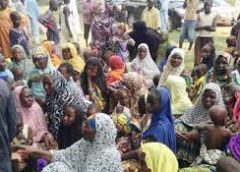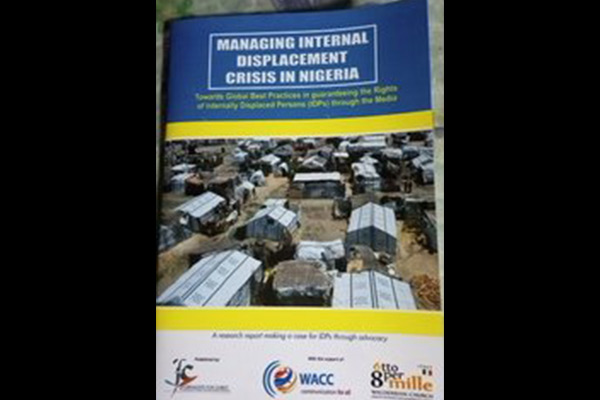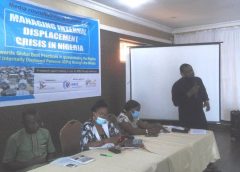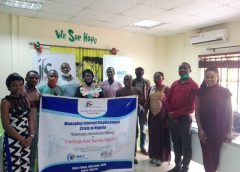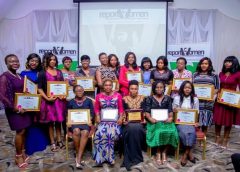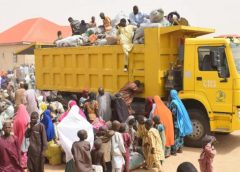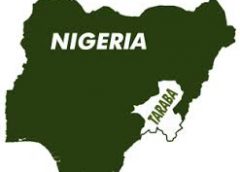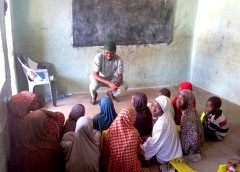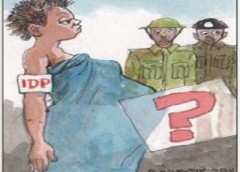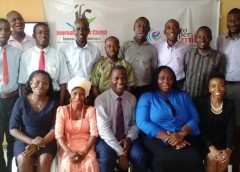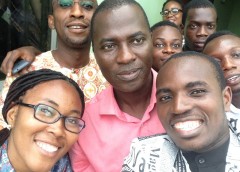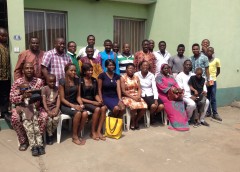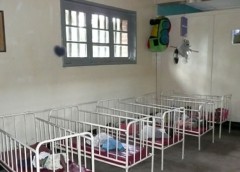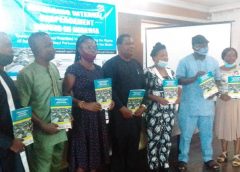
Journalists for Christ International Outreach a media-based organisation in Nigeria has launched a report on Managing Internal Displacement Crisis in the country with a call on the federal government and other stakeholders to protect the rights of Internally Displaced Persons (IDPs).
The media was also urged to lead the advocacy for ensuring global best practices by the government, oganisations and agencies involved in catering for the welfare of displaced persons in the country.
The publication of the research report on making a case for IDPs through advocacy was produced with the support of the World Association for Christian Communication (WACC) and grant from Waldensaian Church’s Otto Per Mille (OPM).
The launch was held in Nigeria’s capital city, Abuja on August 20 at a ceremony attended by IDPs leaders, Non-Governmental Organisations, media, and others
Director of Daily Trust Foundation Abuja, Dr. Theophilus Abbah reviewed the report and a roundtable discussion was held on managing IDPs situation in the country and guarantee their rights.
Abbah lamented the lack of enough attention for displaced persons in the country by the government and society despite their obvious plight.
“Without exaggerating, this research work effectively initiates us into an under-reported ‘beat’ or theme in the country. For a decade on, the country has been destabilized by terrorists, and with banditry and communal clashes, more and more Nigerians are removed from the comfort of their homes to temporary camps and abandoned.
“ In several North-Central States – Niger, Kogi, Benue, Plateau and Nasarawa – not to talk of North-West states, millions of bonafide citizens of Nigeria are displaced. If journalists fail to tell the stories of these unfortunate Nigerians, politicians would forget them in their ‘busy-doing-nothing’ rigmarole in the name of State and political affairs,” Abbah stated.
Abbah noted that the issues of IDPs are becoming commonplace that journalists seem not to see them and urged media houses to do more in looking closer into their plights.
“ When I went to an IDP camp here in Abuja, the living condition was not good. This is Abuja for God’s sake, it is not one remote place. The difference between where they live and the neighbouring community is very clear. These people have no water, they live in thatched houses and one would wonder if they are equally Nigerians.
“Until BBC, Aljazeera, CNN and other foreign organisations go to the IDP camp to shoot a documentary, they may not be well captured because we don’t emphasise them. We pretend these things don’t happen,” he said.
“The idea is that if you are in an IDP camp you are in a safe zone; in a territory where the enemy should not come to attack you but in Nigeria, suicide bombers carry out their criminal act and go scot-free. Terrible things happen, we even hear that soldiers also do terrible things. They use those in IDP camps to farm for them and they work for soldiers without being paid.
“These are abuses on those people’s rights and we need journalists to shout and bring an end to it. Some of these crimes have been reported in the media but the emphasis has not been laid on them. Ironically it is the culture of silence that have helped deepen the crimes against IDPs and the only way to overcome crime is by exposing.
“The only way to deal with the evils in the IDP camps is actually by exposing it and this is what this report is encouraging us to do,” he said.
In his recommendation, Abbah said, “Government should guarantee journalists’ freedom to report IDPs. It is a constitutional right which must not be abridged in the name of providing security for displaced persons.
“Journalists should pitch ideas on the situation in IDPs camps to their news organisations: hygiene, health, security, sanitation, the fate of persons living with a disability.”
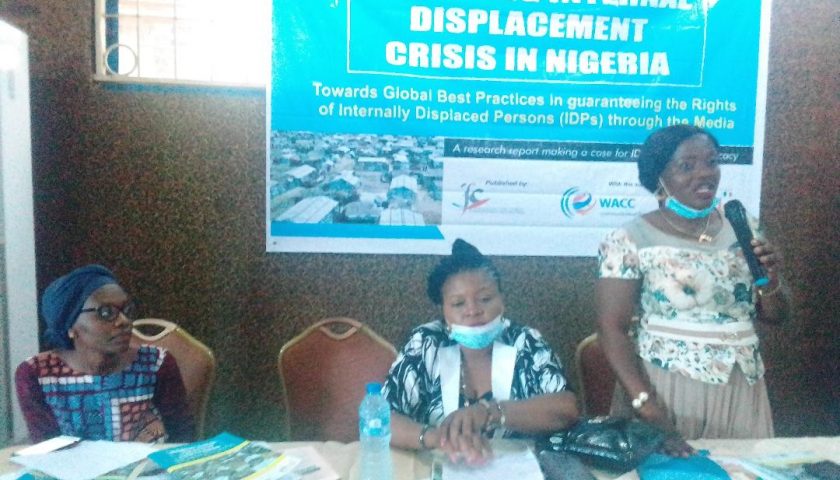
During the roundtable discussion, two displaced persons from camps in Abuja took turns to narrate their challenges.
One of the leaders in the camp who identified himself as Enoch narrated the self-help efforts some of them have made.
“We have set facilities in the IDP camp to be able to tell our stories. We have set up a school but we don’t have enough teachers to teach the children. We also have a skill acquisition centre too for IDPs to acquire skills to live a better life when they return to their various homes,” he said.
Enoch, a graduate of Statistics added that, “Whenever I come to a place like this, I always think about our plights. I always remember my dad that was killed by the terrorists. They killed him and there is nothing we can do, we only trust God.”
He, however, enjoined Nigerians especially journalists to support the IDPs with their expertise. “I don’t pray that everybody should end up in IDP camp but one day if we don’t join our hands together to cooperate against the evil creating IDPs, it may happen,” he said.
Another resident of the IDP camp who simply introduced himself as Gola from Adamawa, enjoined journalists to visit the IDP camps to investigate things that may not easily get to the public domain.
According to him, “There are guys in the IDP camps with collaborators from outside are already given to vices. The government may not know but if journalists would report some of these things, chances are that the government would focus on the vices and intervene promptly before things get out of hands.”
Betty Abah, Executive Director of Centre for Children’s Health Education, Orientation and Protection (CEE-HOPE) urged journalists to look more into the plights of the IDPs especially as it concerns female IDPs.
“The treatment of IDPs in Nigeria is worrisome. As journalists we must continue to speak truth to power,” she said.
Concerned about women and girls in the camps, Abah advised journalists to look into women issues and write more about them in order to draw the needed attention.
“If women in their homes still have issues with getting sanitary pads to use, how much more women in IDP camps? These are things journalists should report vigorously for stakeholders to wade into the crisis,” she said.
Welcoming participants earlier, President of Journalists For Christ International Outreach, Mr. Lekan Otufodunrin said, ‘Managing Internal Displacement Crisis in Nigeria’ is a follow up on an earlier study on the media portrayal of Internally Displaced People in Africa. The monitoring covered Nigeria, Kenya and The Democratic Republic of Congo.
Otufodunrin who was represented at the lunch said JFC was committed to advocating for the rights of displaced persons in the country and will use the research findings as a basis for collaborating with all stakeholders on what needs to be done.
The Vice-Chairman of the Nigerian Union of Journalists (NUJ), Abuja chapter, Mr. Patrick Osadebamwen who applauded Journalists For Christ for a good job, urge journalists to leverage on the findings of the research work.
“ With a report like this, we can see how to intervene via our analysis and reports so we can draw more attention to better living condition for those who are still in the camp and possibly entry to a safer environment and places for those who may find opportunities to leave by virtue of the impact of our reportage that would attract NGOs that may be able to help out.”
